Popular Articles
- Hair Loss Products - 25 Natural Treatments
- Advecia Supplement Facts
- Medications That May Interact with Advecia
- Review of Rogaine for Women
- Vitamin Deficiency and Hair Loss - The Facts!
- 14 Vitamins for Hair Loss & Thinning Hair
- Receding Hair & Beta Sitosterol
- Biotin for Hair Loss - Should You Try it?
- Sugar Linked to Increased Hair Loss Risk
- Hair Loss Vitamins for Women
- More Articles ...
 Try these Amino Acids for Hair LossIn This Article
Amino acids are known to be effective in treating hair loss. Find out how they can help you.
Are you starting to experience hair loss and trying to find natural ways to treat it so you can continue to have a full head of healthy hair? Consider amino acids for hair loss. Some amino acids are extremely beneficial in treating thinning hair in both men and women. They can be used in combination with many hair loss vitamins, minerals, and other nutrients that promote healthy hair and good health in general. Amino Acids, Proteins and Hair
If amino acids are insufficiently supplied to the cells of the hair follicles, the level of keratin production will drop or the keratin produced might lose most of its strength. Both of these will lead to reduced hair growth, discolored hair, and hair strands that easily fall off. While the body uses about 22 amino acids to build all the proteins in the body, those proteins go on to serve as enzymes, hormones, neurotransmitters, and form into tissues, muscles, and organs. Of these amino acids, 9 are considered essential because they are not synthesized in the body. These amino acids need to be ingested either from dietary sources or from supplements. While animal protein sources (meat and dairy products) contain all 9 amino acids, plant sources don’t usually contain all of them. The hair is an example of the complexity and beauty of how amino acids form into proteins. They are not simply strung together. Rather, each protein is made from a specific sequence of amino acids to form a superstructure. This superstructure must then be folded into the exact 3-dimensional form for the protein to function at all or properly. For example, the set of amino acids making up keratin, the hair protein, must not only be pieced together in a perfect sequence but must also be folded up in the right way to fulfill its role. Lastly, amino acids have different functions and they do not all perform the same ones. Some amino acids are interrelated, though, and some functions are complimentary. For optimal hair growth and reverse hair loss, the amino acids that provide the most benefits are discussed below. Amino Acids for Hair Loss:Arginine
However, in distressed states due to disease conditions, stress, and aging, the level of arginine will drop in the body and the amino acid is recommended for supplementation then. Dietary sources of arginine include nuts such as pecan, cashew, hazelnut, peanuts, and coconuts; seeds such as those of sunflower and sesame; as well as wheat germ and flour, beef, fish, poultry, and dairy products. Arginine as a precursor of nitric oxide is essential for hair growth. Hair growth is stimulated due to the properties of arginine increasing the amount of nitric oxide in the body to help potassium openings. This helps to improve blood supply to the roots of the hair and encourage hair growth. Arginine also improves capillary microcirculation to the cells of the skin follicles through the vasodilation caused by the nitric oxide it produces in the body. It is also known to strengthen hair shafts and accelerate the development of hair follicles. MethionineThis is an essential amino acid and a very strong anti-oxidant. It is an excellent source of sulfur, which is something that can prevent problems with hair, nails, and skin. Methionine is lipotropic, meaning that it aids in breaking down fats and keeping fat from building up in certain areas of the body, including the arteries. It can prevent premature hair loss, as well as act as a detoxifying agent for the body. Methionine’s greatest attribute is the sulfur in its chemical structure. It supplies sulfur to hair cells and connective tissues, thereby improving hair strength as well as normal growth and appearance of the hair. Dietary sources of methionine include cereal grains, eggs, sesame seeds, fish, meat, and Brazil nuts. Cysteine
Cysteine is one of the many amino acids that are necessary for healthy hair growth. Adding more cysteine to your diet can increase the rate of hair growth substantially. Cysteine also supplies sulfur to hair cells to improve hair strength. Cysteine is also known to bind to and transport minerals such as iron and zinc which are essential agents in the reversal of hair loss. It is a common ingredient in hair care products. Dietary sources of cysteine include pork, chicken, sausage meat, milk, eggs, yogurt, ricotta, whey protein, cottage cheese, wheat germ, granola, oats, garlic, broccoli red pepper, onions, and Brussels sprouts. CystineThis non-essential amino acid makes up approximately 10 to 14 percent of our skin and hair. Cystine is formed from the disulfide bonding of two cysteine molecules. This bonding of two amino acids provides strength for hair shafts. Since cysteine is formed from cysteine, it shares the same nutritional benefits and dietary sources as that amino acid. It is important to have cysteine in our bodies, both for our overall health and for the health of our skin and hair. Cystine can be used to treat hair loss and has been known to promote natural hair regrowth. TyrosineTyrosine is produced in the body from another amino acid, phenylalanine.
This is another non-essential amino acid that the body naturally produces. This amino acid creates melanin, which is the pigment that colors our hair and skin. We need to have tyrosine for our metabolism, as well as for adrenal, pituitary, and thyroid glands. Not only is tyrosine a good amino acid for hair loss, but it can also be used to treat many other health problems, including insomnia, anxiety, and depression. Tyrosine is also known to contribute to a reduction in stress hormone levels in the body. Since stress is a strong factor in hair loss, tyrosine can slow alopecia too by reducing stress. Taurine
Taurine is an unusual amino acid because it contains a sulphonate group instead of a carboxyl group.
Taurine is the sulfur amino acid that is most abundant in humans and can affect the health of organs and tissues. It is stored in the hair bulbs, and if there is not enough taurine in your system, it could result in thin, weak hair. Apart from its benefits in the development and functioning of the central nervous system, and skeletal muscles, taurine has been shown in studies to maintain skin health and prevent the breakdown of hair follicles.
If your body is not producing enough amino acids, it may be that you will need to start taking supplements or hair loss vitamins such as vitamin A, vitamin E, etc. which are found in many foods, as well as in dietary supplements, and can be purchased at pharmacies, grocery and health food stores, online stores and department stores. |
|||||||
| Next Article: 5 Hair Loss Forums & Websites |





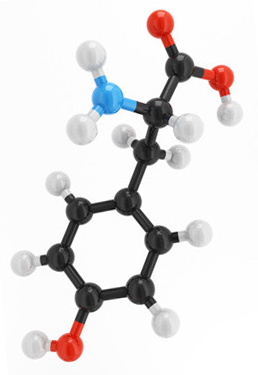 There is a simple relationship between amino acids and hair. Amino acids are the building blocks of all the proteins found in the body and hair is composed of keratin, a protein. It is this keratin that gives hair strands their strength.
There is a simple relationship between amino acids and hair. Amino acids are the building blocks of all the proteins found in the body and hair is composed of keratin, a protein. It is this keratin that gives hair strands their strength.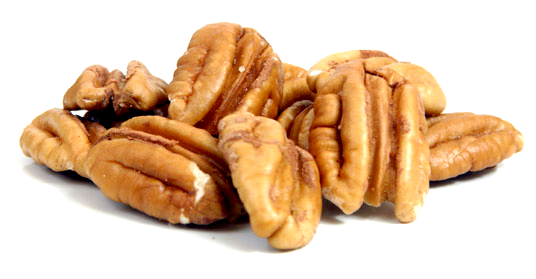 The active form of arginine is
The active form of arginine is 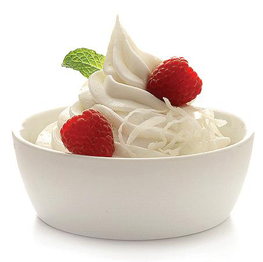 This is one of the non-essential amino acids that our bodies can produce.
This is one of the non-essential amino acids that our bodies can produce.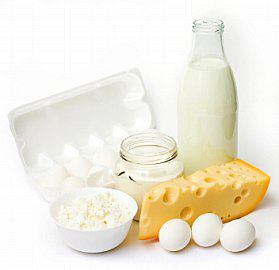 Dietary sources of tyrosine include fish, chicken, turkey, dairy products, peanuts, almonds, lima beans, pumpkin seeds, and soy products. It is also available as a supplement.
Dietary sources of tyrosine include fish, chicken, turkey, dairy products, peanuts, almonds, lima beans, pumpkin seeds, and soy products. It is also available as a supplement.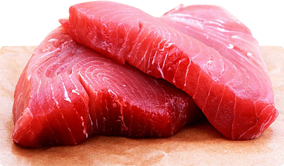 It is also synthesized in the body from cysteine but can also be ingested in food. Dietary sources of taurine include marine animals and meat. It is present in breast milk and added to both energy drinks and infant formulas.
It is also synthesized in the body from cysteine but can also be ingested in food. Dietary sources of taurine include marine animals and meat. It is present in breast milk and added to both energy drinks and infant formulas.